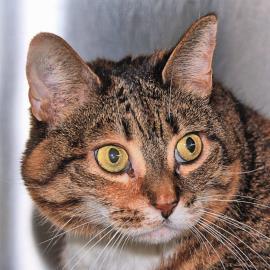As our beloved pets grow older, their once boundless energy may begin to wane, replaced by the gentle wisdom of their years. Just like us, senior pets face a variety of health challenges that can affect their quality of life. Yet, with a little knowledge and a lot of love, we can help them navigate these golden years with grace and comfort. This article delves into the common health issues that senior pets encounter and offers compassionate advice on how to treat them, ensuring that our furry friends continue to enjoy their days to the fullest. Whether your pet is a sprightly senior or a seasoned companion, join us as we explore the steps you can take to keep their tails wagging and their hearts happy.
Understanding Arthritis: Easing Joint Pain in Aging Pets
As our beloved pets grow older, the wear and tear on their joints often leads to arthritis, causing discomfort and reduced mobility. Recognizing the signs early and taking proactive measures can significantly improve their quality of life. Symptoms to watch for include:
- Reluctance to climb stairs or jump
- Limping or favoring certain limbs
- Stiffness, especially after resting
- Changes in behavior, such as irritability or withdrawal
Addressing joint pain in aging pets involves a multifaceted approach. Consider the following strategies to ease their discomfort:
- Dietary supplements: Glucosamine and chondroitin can help maintain joint health.
- Weight management: Keeping your pet at a healthy weight reduces stress on their joints.
- Regular exercise: Gentle activities like swimming or short walks can keep joints flexible.
- Comfortable bedding: Orthopedic pet beds provide extra support.
- Medications: Consult your veterinarian about anti-inflammatory drugs or pain relievers.

Managing Dental Health: Preventing Tooth Decay and Gum Disease
Dental health is a cornerstone of overall well-being for senior pets. Just like in humans, plaque and tartar can build up over time, leading to serious conditions such as tooth decay and gum disease. To help your furry friend maintain a healthy mouth, consider incorporating these preventive measures into their routine:
- Regular Brushing: Use a pet-friendly toothbrush and toothpaste to gently clean their teeth. Aim for at least three times a week.
- Dental Chews and Toys: These can help reduce plaque and tartar buildup while keeping your pet entertained.
- Professional Cleanings: Schedule annual or bi-annual dental check-ups with your veterinarian for thorough cleanings and assessments.
- Healthy Diet: Provide a balanced diet that supports dental health, avoiding sugary treats that can contribute to decay.
By taking these steps, you can help ensure your senior pet enjoys not just a healthier mouth, but a happier life overall.

Nurturing Hearts: Addressing Cardiovascular Issues in Senior Pets
As our beloved pets age, their hearts, much like ours, require extra care and attention. Cardiovascular issues are common in senior pets and can manifest in various forms, from heart murmurs to congestive heart failure. Recognizing the signs early and providing appropriate care can significantly enhance their quality of life. Some symptoms to watch for include:
- Persistent coughing
- Rapid or labored breathing
- Fatigue and weakness
- Fainting spells
- Decreased appetite
Addressing these issues often involves a combination of medications, dietary changes, and lifestyle adjustments. For instance, medications like ACE inhibitors and diuretics can help manage heart disease, while a low-sodium diet can reduce fluid buildup. Gentle exercise tailored to your pet’s capabilities can also keep their heart strong. Regular veterinary check-ups are crucial to monitor their condition and adjust treatments as needed, ensuring your furry friend enjoys their golden years with a happy, healthy heart.

Gastrointestinal Wellness: Tackling Digestive Disorders in Elderly Animals
As pets age, their digestive systems often become more sensitive, leading to a variety of gastrointestinal issues. Senior pets are prone to conditions such as:
- Constipation: Reduced mobility and dietary changes can contribute to this uncomfortable condition.
- Diarrhea: Often caused by dietary indiscretion, infections, or underlying health issues.
- Inflammatory Bowel Disease (IBD): Chronic inflammation of the digestive tract, leading to vomiting, weight loss, and appetite changes.
To manage these digestive disorders, it’s crucial to implement appropriate dietary adjustments and regular veterinary check-ups. Consider incorporating high-fiber foods and probiotics to promote healthy gut flora. Additionally, ensuring your pet stays hydrated and maintains a regular feeding schedule can significantly improve their gastrointestinal health. Always consult with your veterinarian before making any major changes to your pet’s diet or health regimen.


































